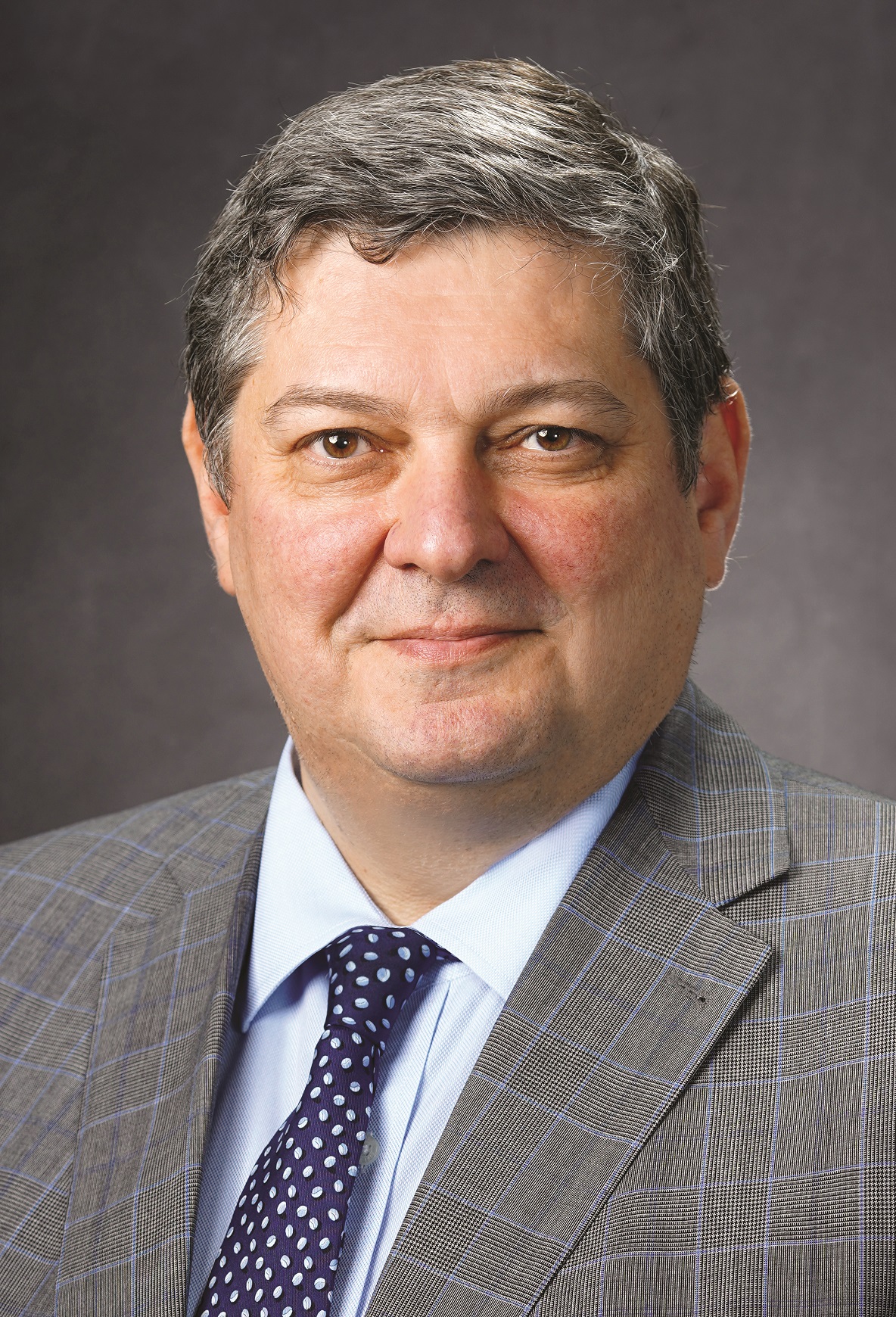
Tudor Jovin, MD
Internationally known stroke expert Tudor Jovin, MD, medical director of Cooper and Inspira Neuroscience and Professor of Neurology and Neurological Surgery at Cooper Medical School of Rowan University, is the co-principal investigator and co-lead author of a study published today in The New England Journal of Medicine which demonstrates the benefits of treating stroke patients with severe brain damage.
The IN EXTREMIS-LASTE (Large Stroke Treatment Evaluation) study, led by researchers from Montpellier University Medical Center in France (Vincent Costalat, MD, PhD, Professor of Neurology and Chief of Neuroradiology Department and Caroline Arquizan, MD, Chief of Neurovascular Department), in collaboration with researchers from Hospital Foch in Paris, France (Bertrand Lapergue, MD, PhD and Chief of Neurology and Neurovascular Department) and from Cooper University Health Care focused on stroke patients with severe brain damage due to blocked blood vessels without any restrictions in the size of seemingly irreversibly damaged brain as ascertained by brain imaging studies.
Traditionally, doctors believed that restoring blood flow to severely damaged brain areas was futile and could even cause harm. However, this study challenged that belief. The researchers found that even patients with the largest areas of damaged brain tissue could benefit from a procedure called mechanical thrombectomy, which clears blocked blood vessels in the brain.
The study involved 333 patients from multiple medical centers in France and Spain. Surprisingly, the patients with the largest areas of brain damage before thrombectomy showed significantly improved outcomes after the procedure compared to non-treated patients, with a magnitude of benefit that is similar to patients with less severe damage. This suggests that some brain tissue previously thought to be irreversibly damaged may actually be salvageable with restoration of blood flow to the brain.
“These findings could revolutionize how doctors treat stroke patients with a large vessel blockage and severe brain damage on pre-thrombectomy scans, potentially saving more lives and reducing disability. As a result of this study, more stroke patients who were previously considered ineligible for thrombectomy may now benefit from this life-saving therapy,” said Dr. Jovin.
Furthermore, because all patients, regardless of extent of damage on the qualifying brain scan, appear to benefit from thrombectomy, the implications of LASTE’S findings are that precise knowledge of infarct size, which is typically obtained from advanced imaging studies, is no longer relevant rendering these sophisticated brain scans unnecessary. And given that advanced brain imaging techniques require considerable time for completion, wide adoption of new triage paradigms based on the findings from LASTE, could lead to substantially faster treatment times of all patients eligible for thrombectomy and to a reorganization of acute stroke systems of care away from time consuming advanced imaging studies and towards speed and Inclusion of larger patient populations.
Since 2015, when mechanical thrombectomy became standard for restoring blood flow in stroke patients with sudden artery blockages, doctors have typically chosen this intervention only for those patients showing limited brain damage on imaging. The principle behind this selection is that restoring blood flow to extensively damaged brain areas is not only ineffective but can also worsen conditions, leading to increased brain bleeding risk and other harmful effects of reperfusion.
The LASTE trial aimed to select patients previously considered “irrecoverable” because of large areas of severely compromised brain tissue caused by acute stroke due to a major artery blockage within 7 hours of stroke onset. The goal was to test whether restoring blood flow to brain tissue thought to be dead could improve not only survival but also functional recovery.
The results align with five other recent randomized trials, indicating the benefit of mechanical thrombectomy in patients with significant but smaller baseline brain damage compared to those in the LASTE study.
“These studies lend additional support to the significant discovery emerging from LASTE,” Dr. Jovin said. “Following the LASTE study, an extra 20% of stroke patients with major artery blockages, previously thought ineligible for mechanical thrombectomy, can now potentially benefit from this life-saving and disability-reducing treatment. In addition, by drastically diminishing the need for time consuming advanced brain imaging studies, many more thrombectomy candidates are likely to be treated faster, which in turn will increase the chances of better outcomes following thrombectomy.”
In accordance with the evidence, the French researchers leading the study have effectively engaged almost all French University Hospitals in this initiative, potentially bringing about a global shift in medical practice, offering thrombectomy treatment in even more patients.
LINK TO STUDY: https://www.nejm.org/doi/full/10.1056/NEJMoa2314063
Plain Language Summary: https://www.nejm.org/doi/suppl/10.1056/NEJMoa2314063/suppl_file/nejmoa2314063_plain-language-summary.pdf
About Dr. Jovin and Cooper and Inspira Neuroscience
Dr. Jovin, an internationally renowned neurologist and researcher who joined Cooper in 2019, is an expert in the interventional and non-interventional treatment for the entire spectrum of stroke and cerebrovascular disorders. He is board certified in neurology and has additional board certifications in vascular neurology and critical care neurology. He was one of the nation’s first interventional neurologists, a medical subspecialty that uses minimally invasive technologies applied from within the vessels to diagnose and treat diseases of the arteries and veins of the head, neck, and spine such as acute stroke, carotid stenosis, intracranial aneurysm, and arteriovenous malformations.
The Cooper and Inspira Neuroscience (CIN) is fully dedicated to the diagnosis and treatment of neurological and neurosurgical issues. The partnership improves local access to a comprehensive range of advanced neuroscience care including surgical and nonsurgical services related to the brain, spinal cord, and central nervous system.
The CNI Stroke Program has received The Joint Commission’s Gold Seal of Approval® and the American Heart Association/American Stroke Association’s Heart-Check mark for Advanced Certification for Comprehensive Stroke Centers. The Gold Seal of Approval® and the Heart-Check mark represent hospitals with the highest level of stroke care and are symbols of quality from their respective organizations.
###
